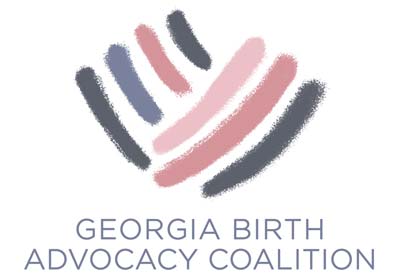7 Reasons Breastfeeding Mothers Can't Just Cover Up--and Shouldn't Have To
It’s World Breastfeeding Week. All across the globe, nursing dyads will be participating in The Global Big Latch On, an event that aims to demystify and destigmatize breastfeeding, including in public. Every state in the United States protects the legal right of babies to nurse in public, and most don’t require that nursing mothers use a cover. Despite this, on social media feeds and blog comment sections across the Internet, breastfeeding awareness events almost always garner the same comments: “I support breastfeeding, but why can’t they just cover up?” “I breastfed, but I was modest about it!” “It’s not that hard to use a cover!”
Except that for some nursing couplets, using a cover is so hard that if forced to use a cover, they might not be able to breastfeed at all.
One of the many reasons events like The Big Latch On exist is because so many people still vocally oppose public breastfeeding. Opposition to public nursing is opposition to breastfeeding. That’s because babies need to eat, wherever they are. And very young babies need to eat very frequently. They can’t wait. Forcing them to do so can be dangerous, especially for preemies, medically vulnerable newborns, and babies who are struggling to gain weight. And their mothers have a right to leave the home. Breastfeeding your child should not mean you’re confined to the house for 12 months or longer. Nor should it subject a woman contempt and judgment from a stranger. Breastfeeding women have had the police called on them, been removed from restaurants and stores, and been publicly shamed and humiliated over and over—all because someone thought they should wear a cover.
We all must navigate the world seeing things we do not want to. Public breastfeeding is hardly the most offensive thing most of us see in a world ravaged by poverty, violence, and abuse of every variety. This alone is reason enough for people to concern themselves with something other than shaming women for feeding their babies.
For those who just can’t understand a mother whipping out a breast, though, here are 7 reasons nursing mothers can’t always use a cover.
Not all babies will nurse under a cover.
Babies are eager to observe their world. They’re especially interested in staring at their parents. Research consistently shows that making eye contact during breastfeeding offers clear, specific developmental benefits. Perhaps this is why some babies just won’t eat under a cover. They’ll repeatedly throw the cover off, refuse to feed, or scream. Would you really rather listen to a screaming child than know that a mother is nursing without a cover? Should babies really be denied food because they won’t eat if they can’t make eye contact?
A cover can be dangerously hot.
In Georgia, daytime temperatures typically soar into the 90s, and often much higher. Putting a blanket over a baby’s face in this punishing heat can cause the baby to overheat. Babies are less adept at regulating their body temperature, and therefore much more vulnerable to heat stroke and other heat-related illnesses. The nursing mother may also overheat under a blanket. Should a baby really be put at risk of heat stroke because a stranger thinks they shouldn’t nurse in public?
Babies are vulnerable to breathing difficulties.
Just as babies are more vulnerable to heat stroke, they are also more vulnerable to breathing difficulties. What would be a minor cold in an adult can be a catastrophic and even life-threatening illness in a newborn. Breastfeeding covers can spread germs, especially when a mother doesn’t have time to wash the cover everyday—and what new parent has time for that much laundry? Moreover, putting a cover over the face and mouth of a nursing baby inevitably means the baby has to work a little harder to take in the same amount of oxygen. For a sick baby, a baby with an underdeveloped respiratory system, or a baby with allergies, this can trigger dangerous breathing issues, and even hypoxia.
A cover isn’t always available.
Babies are unpredictable creatures. And new parenthood is exhausting. It’s easy to forget a nursing cover in the scramble to get out the door every morning. It’s even easier to forget to drag the cover out of the car on a quick jaunt to the mall. Babies have to eat even when their parents forget to bring a nursing cover and there’s not an appropriate substitute.
Public nursing is less revealing than some clothing.
Chances are good that you’ve seen dozens of people breastfeed without a cover, but you haven’t noticed. That’s because the baby covers the nipple. Depending on a woman’s size and shape, very little of her breast may be exposed. Even more exposed positions reveal far less of a person’s anatomy than some articles of clothing might. Judging nursing mothers is a form of selective modesty enforcement that shames people who breastfeed, even as others publicly reveal far more of their bodies.
Breastfeeding is difficult in the early weeks, and using a cover can make it harder.
Nursing a newborn is challenging even in the best circumstances. A mother is recovering from childbirth, functioning on very little sleep, and trying to help her baby get the hang of nursing. A small change in position can ruin the whole thing, making it impossible for the mother to get comfortable or the baby to get the right latch. Throw in a cover, and it all becomes more difficult, requiring more coordination and constant adjustment.
Breastfeeding success in the early weeks is the primary predictor of long-term breastfeeding. Demanding that a woman add one more step to her already taxing breastfeeding routine sets her up for failure.
A random stranger’s discomfort should not trump a baby’s right to eat.
Ultimately, the question of whether nursing mothers should have to wear a cover in public comes down to one simple question: Should a random stranger be able to stop a baby from eating because they are uncomfortable with how the baby eats?
The right of a baby not to be hungry, not to have to wait for food, not to have to be uncomfortable or scared should always trump the right of a stranger to tell a mother how to feed her baby. So next time you think a mother should cover up, try asking yourself one simple question:
How does shaming a person for feeding their baby ever make the world a better place?
Then reconsider your judgment, and think instead about what you can do to help. It doesn’t matter if you used a cover, your friend used a cover, or you think breastfeeding is weird or gross. You do not know another family’s story—and rest assured, no nursing mother is nursing in public because she is eager to face the shame and judgment a stranger wants to inflict on her. She’s not there to offend you or show off. She’s there to feed her child.

